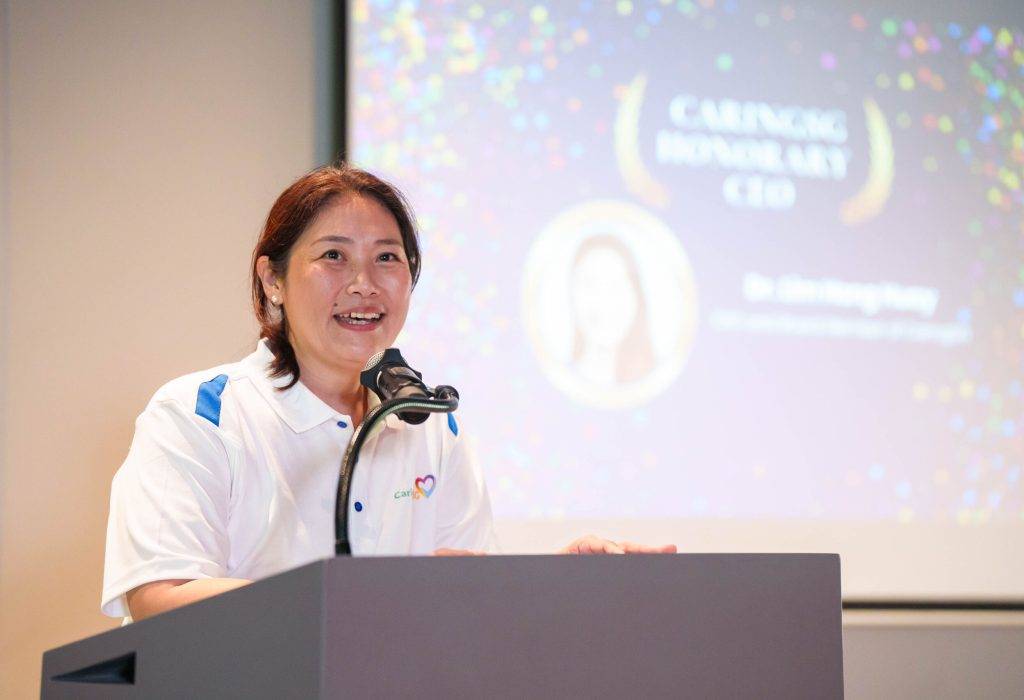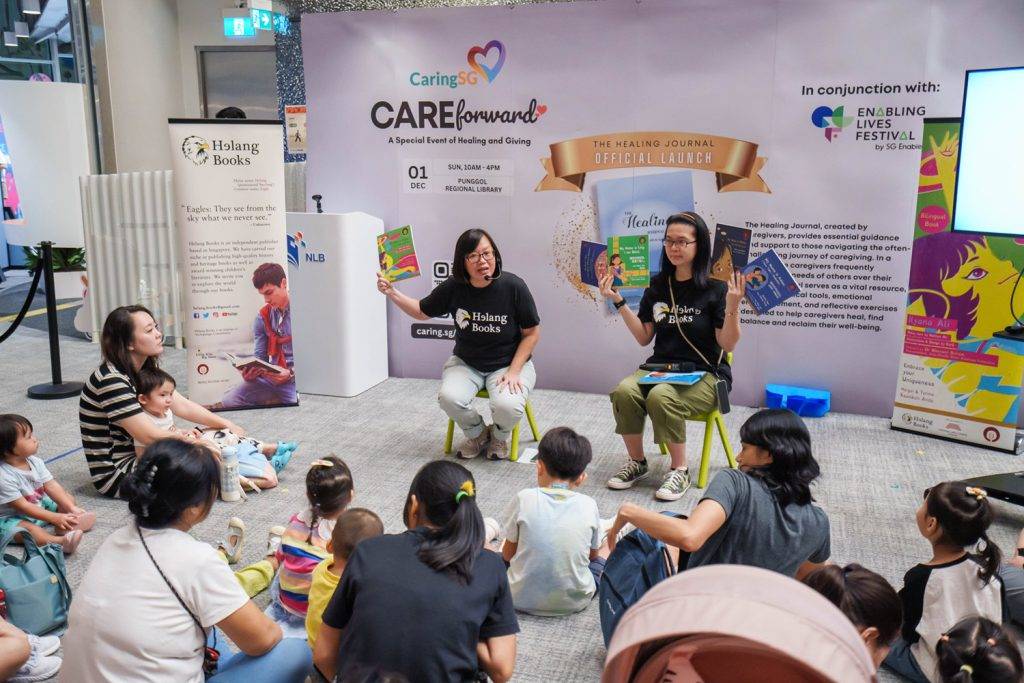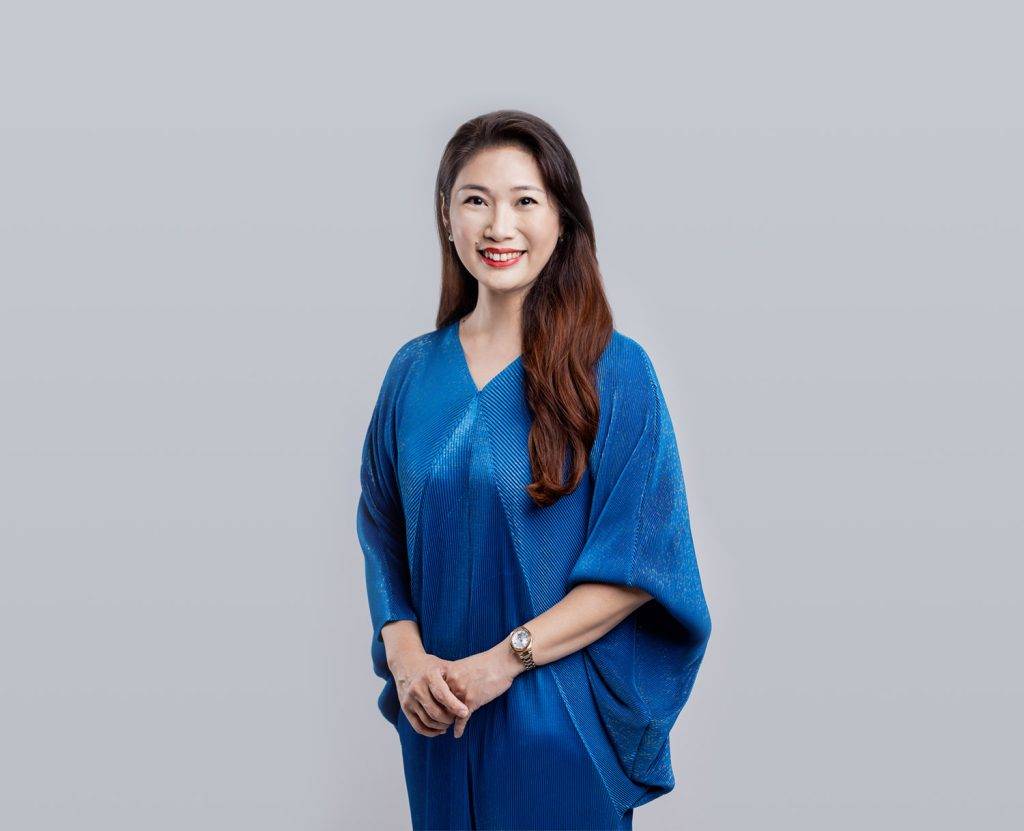Medical Channel Asia spoke with Dr. Lim Hong Huay, a dedicated mother and medical professional, who founded CaringSG, an organization supporting caregivers of individuals with special needs.
Drawing from her personal journey as a mother to children with special needs, Dr. Lim shares her insights on building a community of care and navigating the challenges caregivers face. In this Q&A, she discusses her motivation, strategies for caregiver support, and the impact of CaringSG on families across Singapore.
1. Turning an idea into a functional organisation is no small feat. How did you go from the seed of an idea into CaringSG in reality? What were the biggest challenges?
In July 2020, I started by gathering like-minded caregiver leaders and advocates, as well as professional allies who share the same conviction, compassion and commitment as me. Together we shaped the proposal for the 3i programmes (CAREconnect, CAREbuddy, CAREwell), and then sought support from key stakeholders like SGEnable and National Council of Social Service (NCSS).

With their help, we secured pilot funding for Project 3i from Temasek Foundation, Toteboard ELI initiative, NCSS’s Care and Share Grant and President Challenge. Project 3i was later chosen by MSF and MCCY to be key project for the Alliance for Action for caregivers of persons with disabilities.
This helped CaringSG to garner widespread support from multiple community and private stakeholders, e.g. AIC, SFCCA, M3, SINDA, MIJ hub, Mount Alvernia Hospital, NUS, LKYSPPP etc. With the Singapore Together spirit, we caregivers in CaringSG joined hands with the rest in Singapore to make Project 3i a success. It is only possible because we chose unity amidst diversity.
The biggest challenge we met was to meet the myriad needs of the huge number of caregivers who needed help. There are more than 350,000 caregivers of children with special needs and people with disabilities in Singapore. In the 3 years of Project 3i, we have only managed to reach and helped about 1% of them. There is still so much more to be done, and so many more to help.
2. What do you think is the biggest gap in caregiver support today that CaringSG is uniquely positioned to address?
The biggest gap that CaringSG is uniquely positioned to address is that caregiver now has an agency who knows, remembers and serves caregiver, as a person. Traditionally, caregiver support services had been focused on training caregivers to care for their dependents better. Caregivers were valued as a role and a function. But caregivers are humans too.
While caregiving is a role we perform day-to-day, we have emotional, mental and physical needs too, like any other human being. Often, caregivers of persons with disabilities will pour themselves into long-term and life-long caregiving until they lose their sense of self, and often to the detriment of our own mental and physical health.
Emotionally, caregivers of persons with disabilities and special needs children are often beseiged with cyclical grief throughout life, and are thus at higher risk of mental health issues. Financially and socially, caregivers of persons with disabilities also suffers from loss of social capital over time.
Hence CaringSG is here today because we value caregivers. We believe every caregiver can be well and empowered.
3. How has your role as both a caregiver and as an advocate influenced the way you approach solutions for families in similar situations?
Two words – balance and bridge. I learnt to look at matters from both the angle of a caregiver, and also as a professional. I learnt to speak up for my fellow caregivers, and explain the needs and challenges to my professional counterparts and stakeholders, and propose feasible and relevant caregiver support solutions that align with stakeholder and national interests. Caregivers now have a voice through CaringSG.
I also learnt to clarify professional myths, and explain policies and services to my fellow caregivers, so that they can better navigate and access needed services.
Through CaringSG, we are able to systematically build bridges between caregivers and the community. Whilst many things are still imperfect, I believe if we keep trying, we can become better day by day.
4. What is your message to the public about how they can be involved; or help alleviate the struggles of a caregiver?
Please support the caregivers you meet in your life. Caregivers need you. Be a friend, be a listening ear. Be a helping hand.
CaringSG currently has an ongoing campaign CAREforward https://www.caring.sg/careforward/ You can donate $50 to receive a healing journal, which you can “care-forward” by passing it to any caregiver you know. This healing journal is specially created to aid caregivers in their self-discovery and healing journey.

Also you can join CaringSG as a member to hear more inspiring stories from our amazing caregivers featured in our monthly newsletters and blogs, and also learn more about caregiving through our resources, webinars, CAREconnect activities and volunteer opportunities. We warmly welcome you to be part of the CaringSG family today!
The Singaporean of the Year Award, organised by The Straits Times, celebrates individuals or groups who make meaningful contributions to society. Alongside Dr Lim, the other finalists for the Singaporean of the Year 2024 demonstrate the many ways Singaporeans uplift others and drive progress.
Now in its tenth year, the award highlights stories of resilience, compassion, and excellence. Through recognition of these contributions, the award inspires others to create change in their own unique way.
Voting for the 2024 awards is open until 31 January. Members of the public can cast their votes online at The Straits Times’ official voting page.
The final winner will be announced on 24 February. Cast your vote today to honour their efforts and impact.

